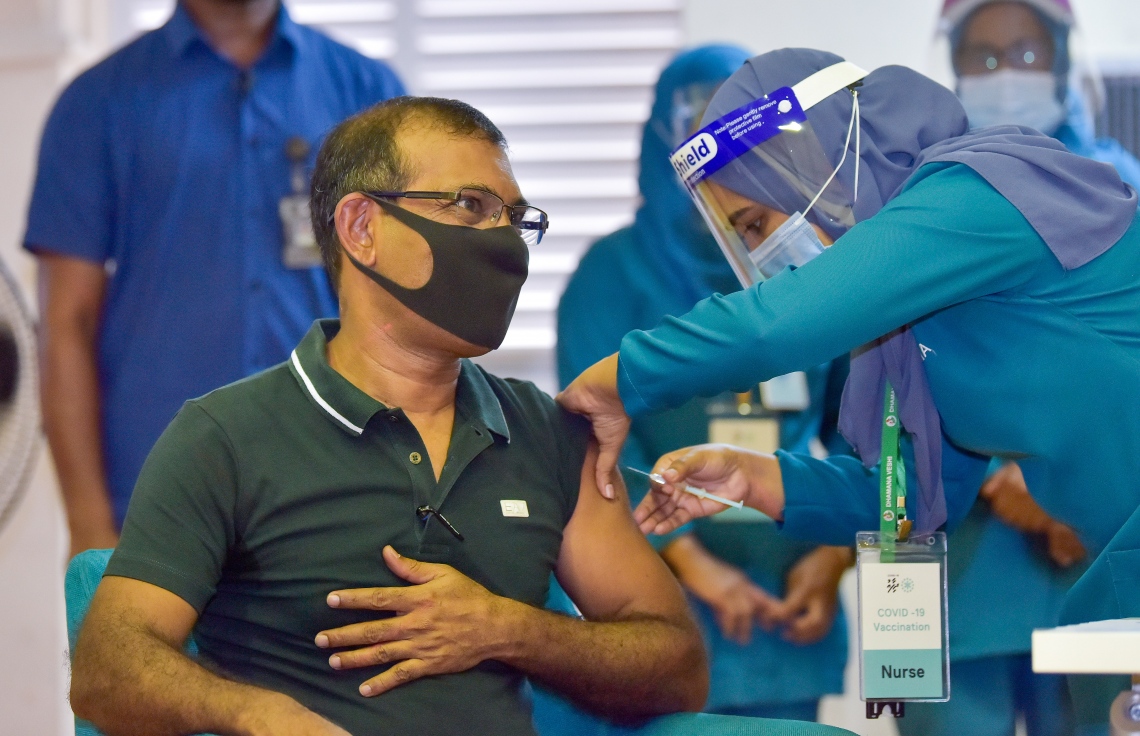Malé, Maldives – The Speaker of the Maldives Parliament Mohamed Nasheed, today, warned against closing the Maldivian borders.
In a reported Whatsapp group conversation of ruling party MDP, Speaker Nasheed stated that closing the Maldivian borders will create irrecoverable losses.
There no other way except to live with Covid-19.
Speaker Mohamed Nasheed
Nasheed’s messages come at a time when the President of Maldives Ibrahim Mohamed Solih has expressed alarm regarding the newly classified “Omicron” variant by the World Health Organization (WHO).
The B.1.1.529 “Omicron” variant was first reported to WHO from South Africa on 24 November 2021, with cases reported from other countries including some suspected cases reported from European countries and traced back to Turkey and Egypt. This new variant has been demonstrated to be associated with one or more of the following changes at a degree of global public health significance:
- increase in transmissibility or detrimental change in COVID-19 epidemiology; OR
- increase in virulence or change in clinical disease presentation; OR
- decrease in effectiveness of public health and social measures or available diagnostics, vaccines, therapeutics
The “Omicron” variant has been announced when the Maldives tourism has significantly recovered with the ease of border restrictions from many source markets.
Future COVID-19 outbreaks, both locally and in major tourist markets, could slow the pace of the recovery. The low level of usable reserves and high indebtedness pose significant risks to macroeconomic stability.
The World Bank
High-end tourism is the key driver of growth and poverty reduction in the Maldives with the annual real GDP growth averaged 6.3% from 2015 to 2019. From end-March to mid-July 2020, the island destination was forced to close its borders to tourists, bringing the economy to a standstill. Tourist arrivals plummeted nearly 70 percent, leading real GDP growth to contract by nearly 30 percent compared to 2019.
While Maldives forecasts 1.3 million tourist arrivals by the end of 2021, the economy is highly dependent on the evolution of the Covid-19 virus.





